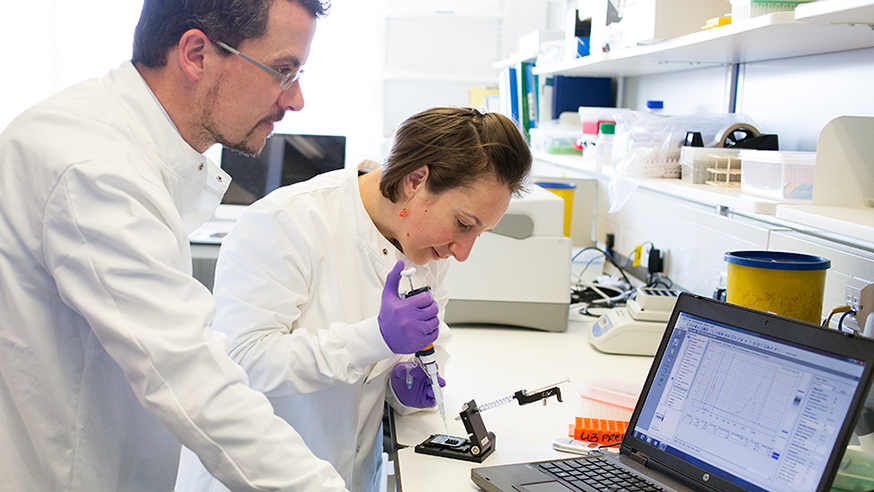
‘Two heads are better than one.’
This proverb has existed since around 1546, but using multiple minds to solve complex problems is still as relevant today.
Professor Paul Workman, the Chief Executive of The Institute of Cancer Research, London, is a champion of team science and encourages our researchers to work in diverse, multidisciplinary teams.
The Science of Team Science 2016 Conference in Phoenix, Arizona on 16–19 May 2016 provided the perfect place to showcase what we have achieved and two of ICR’s staff shared our expertise.
Dr Vanessa McKean, the ICR's Athena SWAN Coordinator, focused on diversity in teams.
The under-representation of women in senior academic roles remains a huge challenge in the UK and beyond. Dr McKean has examined the means by which organisational change can retain women and develop their careers in research. She argues that conditions and indicators of successful team science should also be those in which diversity thrives.
Evidence-based approach
Her presentation drew on factors which made the ICR successful in its Athena SWAN Silver application.
The ICR took an evidence-based approach to understanding women’s experiences of academic scientific careers, with a systematic analysis of four years’ data on the gender of staff in all research career paths, recruitment, committee membership, working patterns and maternity leave.
This was supplemented by further research to understand why women chose to leave research or move to technical career paths. In response, initiatives have been developed to address specific issues that were uncovered. These include leadership development programs for women, mentoring and women’s networking groups.
In addition to sharing this success, the ICR used the conference to hear from US partners to learn more about supporting the career development of women.
Collaborative skills
Dr Amy Moore, the ICR’s Researcher Development Manager, attended the conference to highlight the long term impact of our collaborative ‘Pathway to Independence’ programme.
The programme supports cohorts of outstanding postdocs from ICR and peer organisations, such as the Wellcome Trust Sanger Institute, to transition to a team leader role. It explores key skills required to deliver science in a multidisciplinary environment, such as influencing, negotiation, and collaboration skills.
Since its launch in 2013, 48 delegates have participated from 12 different UK research institutes and 50% of postdocs who attended the pilot programme are now in group leader roles.
Amy also showcased the ICR’s researcher development support, discussing development opportunities for researchers in the US, and highlighting opportunities for researchers at the ICR in world-leading US universities.
It was great to see so many researchers coming together for this conference to learn from each other and share their knowledge. After all, that’s what team science is all about.
comments powered by